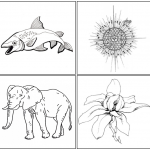NERC is inviting applications from researchers to deliver public engagement activities as part of the ‘NERC Summer of Science’ taking place during the summer of 2015.
The deadline for applications is 17:00 on 26 January 2015.
Eligibility and conditions
To be eligible to apply for this funding, you must currently have funding from NERC or have received NERC funding within the past five years. The activity must be based upon research that NERC is currently or has previously funded.
Funding
We are providing funds for researchers to develop and deliver ways to engage the public with their research. For the purposes of this call for proposals, we will refer to the mechanism of delivery as an ‘activity’ – however, this is being used to encompass a range of different ways to engage the public, such as exhibitions, workshops or a café scientifique.
Funding will be provided to support researchers to:
- take activities that have already been developed to different venues where they can be used to engage with the public
- support the development of new activities, as long as there is no duplication of existing activity, and take these to venues to engage with the public.
Those who have successfully applied to the 2015 round of the Royal Society Summer Science will also be funded through this round – you will not need to complete an application form, instead please submit a short covering email to Poppy Leeder (contact details below), stating the funds you are seeking, with your Royal Society application form attached, to ensure you are considered by the panel.
Up to £7,500 is available per activity. We are keen to support a range of different activities and anticipate many applications will seek less than this. The award may be used as part-funding for larger projects involving other funders, although the activity will need to take place during 2015.
The funding cannot be used to:
- support staff salaries
- pay for attendance at academic conferences/meetings
- purchase materials or equipment that are not integral to the activity proposed.
We recognise that applicants may, at the application stage, have no idea whether they will be able to attend certain venues (if applications for festivals have not yet opened, for example), we also recognise that some applicants may be offered opportunities to attend events later in the year that were not originally anticipated. Therefore, we can release funding in tranches; for development of activities (if necessary) in the first instance, and subsequently to cover the travel and subsistence costs of taking the activity and researcher doing the engagement to the venues as that occurs. We will build some flexibility into the funding offer to allow you to take advantage of opportunities you may get during the year – please indicate in your application form if you consider this may be necessary.
Venues for engagements
We encourage applicants to consider a wide range of places where you might engage with the public. Non-traditional venues for engaging the public with research, such as shopping centres, pubs, festivals (of music, food, etc), will be well regarded.
Evaluation
We will evaluate the anniversary year, and individual activities, so we are able to report on the success of it as a whole and learn lessons from the different activities undertaken and assess value for money. As part of this, Summer of Science grantholders must evaluate their exhibit/activity to determine if they have been successful in meeting the aims. Guidance on evaluation – external link – is available.
Training
We can provide public engagement training for any staff/volunteers who will be working on the exhibit/activity – depending upon the level of demand for this, we may offer this in Swindon or in different venues around the UK. Please see details of the free training course we run.
Requirements
NERC Summer of Science grantholders will be expected to:
- display NERC 50th anniversary logos and branding within the activity, associated literature and websites
- contribute to NERC public engagement roadshow blog/events listing
- evaluate the success of the exhibit and provide a short evaluation report to NERC by 31 December 2015.
What we will provide:
- funding to develop an activity (if that does not duplicate one that already exists), and funds to take your activity to venues where you can engage the public
- a blog/event listing where information about all the activities will be displayed
- branding guidance and support
- training on engaging the public if you would like anyone working on your activity to have this
- support in promoting your activity through social media.
Assessment of proposals
The proposals will be assessed by a small panel of NERC staff taking the following into consideration:
- quality of the proposed activity (this will include the kind of engagement proposed, numbers reached, audience numbers and whether it may reach new audiences, clear achievable objectives for the engagement, etc)
- balance of research across the NERC portfolio
- geographical spread across the country
- fit with the stated aims
- realistic and properly justified costs (if there is a funding shortfall, applicants will need to demonstrate how they will make that up).
We are keen to offer the public a varied and interesting set of exhibits/activities in a range of different types of venues around the country to support public engagement with a range of science areas within NERC’s remit.
Applications
Applications should be submitted on the Summer of Science application form – external link – before the deadline of 17:00 on 26 January 2015.
 Public Engagement Funding Opportunity: Engaging the public with environmental science 2022
Public Engagement Funding Opportunity: Engaging the public with environmental science 2022 NERC: COVID-19 Public Engagement Grant Opportunity
NERC: COVID-19 Public Engagement Grant Opportunity Public engagement in LES selected for NERC’s Engage blog
Public engagement in LES selected for NERC’s Engage blog










 BU attendance at third annual GCPHR meeting in June
BU attendance at third annual GCPHR meeting in June Interactive Tangible and Intangible Heritage Applications – BU student work featured in new book chapter
Interactive Tangible and Intangible Heritage Applications – BU student work featured in new book chapter Second NIHR MIHERC meeting in Bournemouth this week
Second NIHR MIHERC meeting in Bournemouth this week MSCA Postdoctoral Fellowships 2025 Call
MSCA Postdoctoral Fellowships 2025 Call ERC Advanced Grant 2025 Webinar
ERC Advanced Grant 2025 Webinar Horizon Europe Work Programme 2025 Published
Horizon Europe Work Programme 2025 Published Horizon Europe 2025 Work Programme pre-Published
Horizon Europe 2025 Work Programme pre-Published Update on UKRO services
Update on UKRO services European research project exploring use of ‘virtual twins’ to better manage metabolic associated fatty liver disease
European research project exploring use of ‘virtual twins’ to better manage metabolic associated fatty liver disease